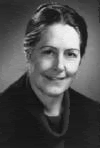Why? Because Congress wants to levy a $6.7 billion premium tax on all private health plans each year for the next decade to pay for reform.
That's a $67 billion tax.
Health plans will have no choice but to pass these costs on to the consumer. This tax will make it tougher for families to afford coverage, increase the difficulty for small-business owners trying hard to insure workers, and stifle job creation.
In Florida, small businesses are the bedrock of our economy. This tax will hit our economy especially hard. It's just not what families and small businesses need as they dig their way out of a severe recession.
The Congressional Budget Office evaluated this tax and found it will lead to "higher premiums for private coverage." The nonpartisan CBO estimated that premiums for individual coverage could rise by as much as 13 percent.
This tax also might be disruptive to policyholders, because it could damage the ability of health plans to deliver all the benefits that members expect.
That's because Congress is ready to impose this health-insurance tax in 2010. That's after families have already signed up for coverage for next year, and after small businesses have already negotiated coverage contracts.
The result? Health plans may not receive enough premium to cover the costs of the massive tax, and benefits might suffer.
Unfortunately, health plans have been demonized in the pursuit of reform. But in reality, it's not true to claim that health plans make a lot of money; their profit margins are actually pretty small.
In 2008, private health plans made $8.61 billion in total profits nationally, according to Forbes magazine. The industry's profit margin was just 2.2 percent, ranking health plans 35th out of 53 industries in terms of profitability.
As the president and CEO of SantaFe HealthCare — the parent company of AvMed Health Plans — I am truly concerned by this proposed tax. As one of Florida's oldest and largest nonprofit health plans, AvMed reinvests its earnings each year to continually improve on the benefits and services it offers to members in Orlando and elsewhere.
Obviously, a health-insurance tax that wipes out most of our annual earnings is counterproductive to our mission. Surely, congressional leaders must grasp that this tax doesn't make sense.
There are better ways to pay for the systemic health-care reform that AvMed and other health plans support.
Instead of taxing health insurance, Congress should focus on the underlying costs of medical care. We can achieve huge cost savings by ending unnecessary treatments and services, rooting out rampant fraud and ending frivolous medical lawsuits filed by trial lawyers.
Health reform shouldn't hurt Florida's families and small businesses. It shouldn't hamper the ability of health plans to provide benefits.
Time's running out.
Please contact your congressional representative and Florida's two senators today. Ask them to vote against this harmful health-insurance tax. We can achieve true, lasting reform in better ways.
About the Author
Quoting & Saving just got easier...Easy To Insure ME Health Insurance Quotes... Quote all carriers in secondsFlorida Health Insurance
Georgia Health Insurance
(ArticlesBase SC #1609218)
Article Source: http://www.articlesbase.com/ - Premium tax would hike health-insurance costs

